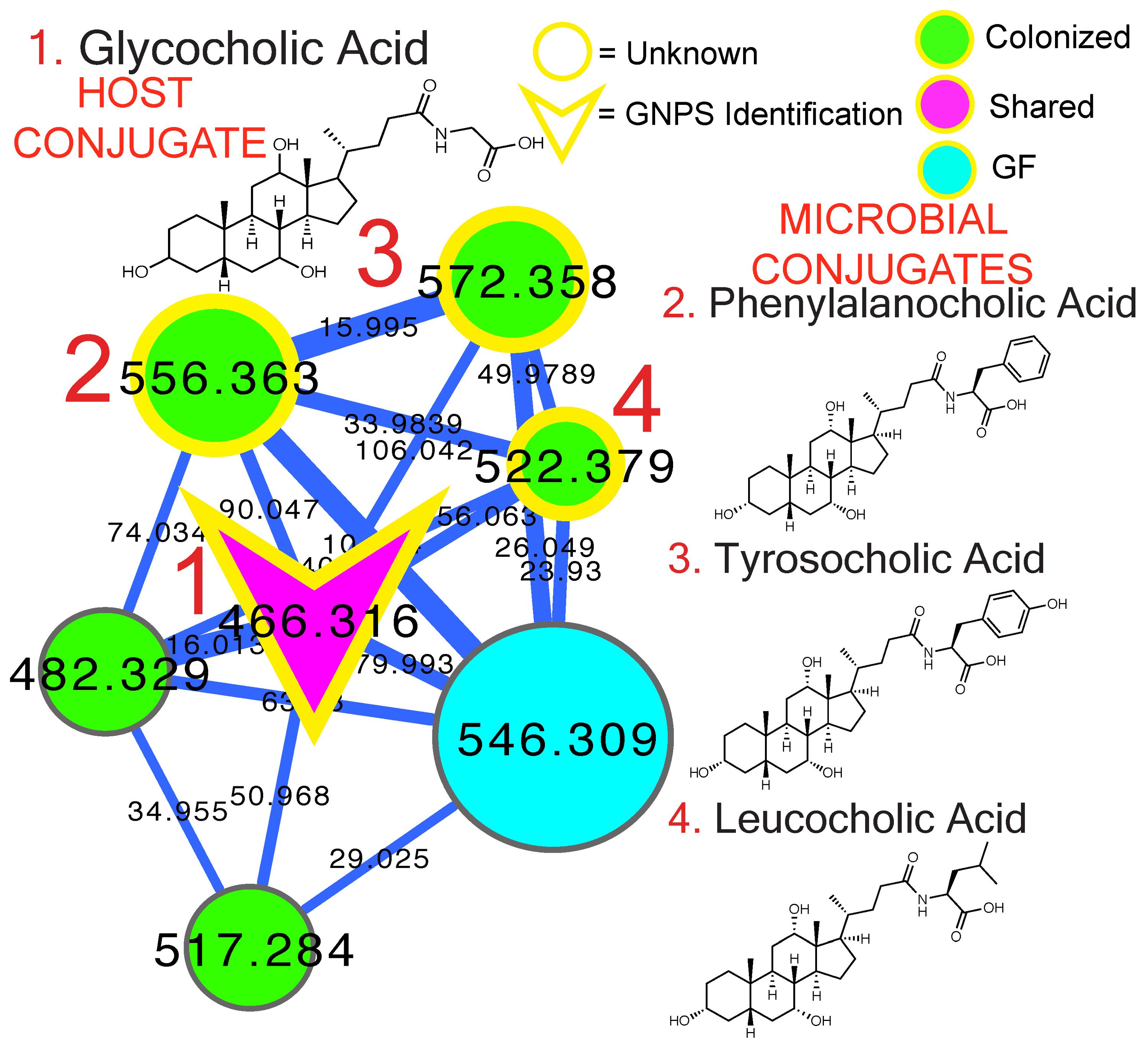Current Research
 The human genome has approximately 20,000 genes. Estimates of genetic diversity in
the human microbiome are on the order of 600,000. All metazoans interact with their
hosts through small molecules, but we have a very poor understanding of what this
chemistry is and how it affects our physiology. My laboratory uses multi-omics methods
driven by microbial ecology theory to investigate the role of microbiomes of humans
and animals during health and disease.
The human genome has approximately 20,000 genes. Estimates of genetic diversity in
the human microbiome are on the order of 600,000. All metazoans interact with their
hosts through small molecules, but we have a very poor understanding of what this
chemistry is and how it affects our physiology. My laboratory uses multi-omics methods
driven by microbial ecology theory to investigate the role of microbiomes of humans
and animals during health and disease.
We have three main areas of focus:
- cystic fibrosis lung
- human gut
- coral reefs
 Disparate as they may seem, all three represent mucosal associated microbial communities
where a consortium of microorganisms interacts with each other and host cells. Using
methods such as untargeted metabolomics, metagenomics and classical microbiology experiments,
we are piecing together the role of these microbiomes in host health. In the case
of cystic fibrosis, we see how inflammatory action shapes the chemical environment
of the CF lung favoring the growth of particular pathogenic bacteria. In the human
gut, we show how advanced mass spectrometry analysis methods can lead to the discovery
of new chemistry of human bile acids, which have been intensely researched for over
170 years. On coral reefs, we show how symbiotic algae respond to coral bleaching
events by modifying their lipid chemistry to resist thermal stress. Everywhere we
look we find microbiomes interacting with their hosts, the chemical dark matter of
this interaction represents a mosaic of cross-phylum chemical interactions of which
we have only begun to illuminate.
Disparate as they may seem, all three represent mucosal associated microbial communities
where a consortium of microorganisms interacts with each other and host cells. Using
methods such as untargeted metabolomics, metagenomics and classical microbiology experiments,
we are piecing together the role of these microbiomes in host health. In the case
of cystic fibrosis, we see how inflammatory action shapes the chemical environment
of the CF lung favoring the growth of particular pathogenic bacteria. In the human
gut, we show how advanced mass spectrometry analysis methods can lead to the discovery
of new chemistry of human bile acids, which have been intensely researched for over
170 years. On coral reefs, we show how symbiotic algae respond to coral bleaching
events by modifying their lipid chemistry to resist thermal stress. Everywhere we
look we find microbiomes interacting with their hosts, the chemical dark matter of
this interaction represents a mosaic of cross-phylum chemical interactions of which
we have only begun to illuminate.
